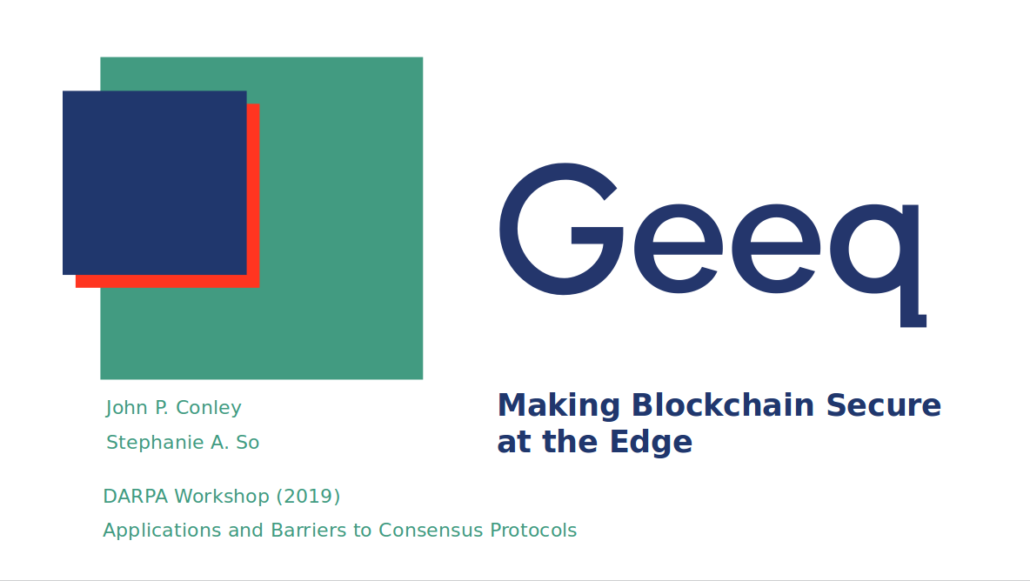By: Geeq on Mar 1, 2019
DARPA asked the question, Geeq answered the call. In December 2018, DARPA issued a RFI (Request for Information) on the topic: Applications and Barriers for Consensus Protocols. Selected submissions would be asked to present at a one-day conference on security in February 2019.
Here is an excerpt from the RFI (emphasis added).
“Technologies for distributed consensus protocols … have dramatic implications for the security and resilience of critical data storage and computation tasks, including for the Department of Defense (DoD). At the same time, the concrete applications and security of these technologies for the DoD is unclear. DARPA is interested in better understanding the broader implications that such technologies may play for the DoD.”
Geeq’s Nashville co-Founders Stephanie So and John Conley were invited to present, and off they went.

The result? A productive all-day seminar about the security vulnerabilities that persist when data systems depend on firewalls and permissioning, as well as a frank and fairly blunt presentation by John about the limitations of thinking about blockchain consensus protocols from only a practical Byzantine Fault Tolerance (pBFT) mindset.
The talk was well-received. Amongst that crowd, it was easy to explain why depending on a ‘sufficiently honest’ group of blockchain validators could be a very dangerous assumption. Instead, they understood: if you’re concerned about security for a distributed ledger technology like blockchain, it makes less sense to attempt to protect a center than it is to provide security at the edge.
To read more about the Edge Security component of Geeq’s Proof of Honesty protocol, please see Section 9 of the Geeq Project Technical Paper.






To learn more about Geeq, follow us and join the conversation.
@GeeqOfficial